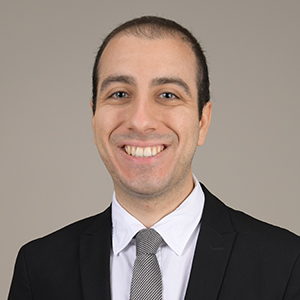
Dr. Ayla
Dr. Ayla notes that each mentee in his group is at different level in their career—there is one resident and another doing a fellowship—while he is still early in his career. This mix, he says, “makes our discussions even more exciting.”
Shreyas Patil, MBBS, now in his second year of residency at the Wright Center for Graduate Medical Education, Scranton, Pa., saw enrollment in Rheum With a (re)View as a way to become more oriented with research in rheumatology.

Dr. Patil
“In this day and age, there is a lot of data out there,” he says. “Being able to ask the right sort of questions and come up with the right sort of research is important at this juncture. That’s what makes a person a great researcher and what will advance the field in the long run. Being involved in this peer review program has definitely opened my eyes to that.”
“I’m always a fan of getting more training, so that’s what I was looking for out of this program,” says Natalya Surmachevska, DO, who recently became an assistant professor in the Division of Rheumatology, Boston University Chobanian and Avedisian School of Medicine. She enrolled in the mentoring program while a fellow at Harvard University’s Beth Israel Deaconess Medical Center and reports that the program gave her exactly what she was looking for: “The training taught us to review a paper from A to Z in a standardized way.”
The teaching modules were especially helpful. “The modules were a good baseline so that everyone starts in the same way and understands the concepts of academic integrity,” she says. “It’s good to have a formalized method, to have it written down and then to have the ability to approach this in a standardized way. That gives you [the reviewer] confidence.”
Respect for the Process
The mentees with whom we spoke embrace the responsibilities involved in the peer reviewing process, thoughts which align with Dr. Ferucci’s view and her approach to being a mentor.
“I definitely consider any review from the point of view of both the author and the reviewer,” she says. “From the author’s perspective, receiving a review that is perceived as completely negative or that has unclear implications for revising the manuscript can be demoralizing. A couple things I coach mentees to do are to give comments that help the author understand what value their work has to the field and to provide them with very specific feedback on steps they need to take to address any issues with the manuscript.”



